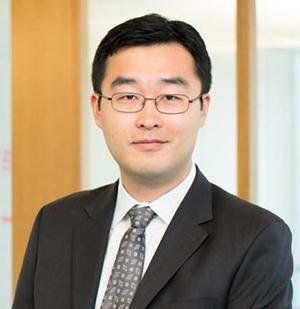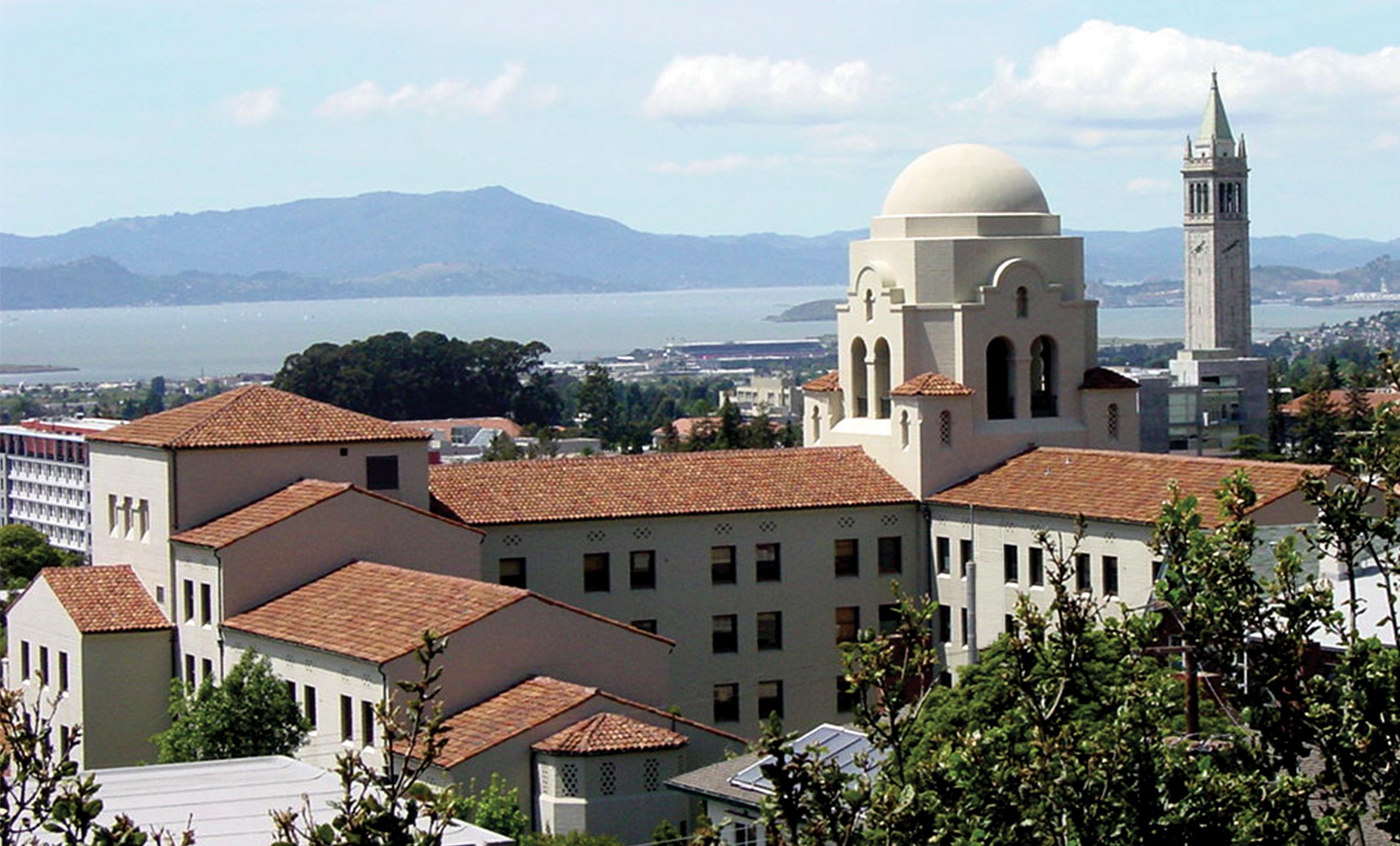
“Faced with some of the greatest challenges of our time, individuals today have a greater than ever opportunity to make a difference,” said Peng Zhao, guest speaker at the UC Berkeley Statistics commencement on May 18. He encouraged graduates to persevere resolutely and seek opportunities to strengthen their communities.
Zhao earned his Ph.D. in statistics from Berkeley in 2006 before joining Citadel Securities as a quantitative researcher. He became CEO of the global financial firm in 2017. Zhao is co-founder of the Asian American Foundation, which promotes belonging and inclusion for the Asian American and Pacific Islander (AAPI) community, and a member of the new advisory board for the Division of Computing, Data Science, and Society (CDSS).
The ceremony at Zellerbach Playhouse honored more than 100 statistics students who earned bachelor’s, master’s, or doctoral degrees in 2022 and those who graduated in 2021 and returned to campus for an in-person commencement.

“I promised my family, who are seated here today, that they’d get to see me graduate from Berkeley in person at least once,” said Ishaan Srivastava, the master’s student speaker at the event who also completed his bachelor’s in statistics in 2021. Srivastava emphasized the mutual support among the master’s cohort and the diversity in the program.
“Your hard work, dedication, resilience and support of one another are remarkable,” said Sandrine Dudoit, chair of the Statistics Department, as she welcomed graduates at the start of the ceremony. She noted that it was the first Statistics commencement since the department had joined CDSS.
In her introductory remarks, Jennifer Chayes, associate provost for CDSS, urged graduates to “consider how you can contribute to making the world a better – and better informed – place.” The graduates should consider applying their understanding of statistical relevance to pressing societal challenges and “help push forward the solutions and stories that underlie the numbers,” she said.
One lost ticket
In his speech, Zhao shared a story about growing up in Beijing and attending a “squarely mediocre” neighborhood school. He received one of two tickets allotted to his third-grade class to attend an event with 600 students, where the top 60 would be selected to participate in weekend math olympiad classes.
“I had mixed feelings about this,” Zhao said. “Having more classes on the weekend as a reward for having really good math grades seemed fundamentally unfair to me, so I remember leaving the ticket on my desk when I went out to play with my friends during recess.”
When Zhao returned later, the ticket was gone. He attempted to convince his father that the lost ticket was unimportant, but his father insisted on returning to the school to look for it. After failing to find the ticket in the classroom, they asked the janitor if they could look through that day’s garbage, but the garbage truck had already picked it up.
“My dad borrowed a shovel from the janitor and asked for directions to the dumpsters where the entire neighborhood’s garbage went for that day,” Zhao recalled. His father pushed over the two large dumpsters, and then “shovel by shovel, my dad started filtering through the garbage looking for a small piece of paper,” he said.
“This went on for what felt like an eternity,” Zhao remembered. “People coming back from work streamed past us, looking curiously at a man shoveling garbage and a seven-year-old boy standing there, crying uncontrollably.”
Zhao said he begged his father to go home, but his father told him, “‘We've gone through all this trouble. There's only a small pile left. How can we give up now?’”
“The very next shovel, we found my ticket,” said Zhao.
The experience stayed with him and left him an optimist, convinced of the value of perseverance, Zhao explained. The ticket to the math olympiad turned out to be a significant milestone, putting him on a path that led to a Ph.D. in statistics and a successful career in finance.
Two lessons on campus

Zhao also recounted his first meeting with his Berkeley advisor Bin Yu, a professor of statistics and electrical engineering and computer sciences. “Right away, I was given two specific lessons.” The first lesson Yu shared was that as someone from a country with a different culture and language, “to accomplish the same as others would, you need to work twice as hard. Exclamation point,” Zhao said.
“Number two,” Zhao continued, “I was told to move out of the apartment I had already rented and move into International House, or I House,” a multicultural dorm where students from different countries are encouraged to learn from one another. “This way, I will have to practice my English every day,” he explained.
Zhao followed Yu’s advice and said that living in I House helped him appreciate the environment that Berkeley can create, describing the university as “a diverse group of people from very different places in life, who share a common joy in collaborating and learning together – and a place where the best ideas always win, regardless of who you are and where you come from.”
Good news during grim times
In her welcoming remarks, Dudoit noted that the news had been grim lately, “whether it's this unending pandemic, racial hatred, global warming, threats to democracy or wars around the world.”
“The good news and what gives me hope is you – you and the career path you’ve chosen in statistics and data science,” she continued. “In today’s data-intensive world, your training in statistics is more relevant than ever.”
“So, please, go ahead and use your skills to learn from data, to promote ethical use of data and algorithms and to debunk misinformation,” Dudoit urged the graduates.
It was also in the face of grim news that Zhao resolved to co-found the Asian American Foundation. “In early 2020, as the world started to wake up to the realities of COVID-19, I started seeing headline after headline detailing attacks and hate incidents targeting Asian Americans and Pacific Islanders across the country,” he said.
The launch of the Asian American Foundation “marked the largest philanthropic commitment in history by Asian Americans fully focused on supporting AAPI causes,” noted Zhao. The foundation’s goal is for the AAPI community to “feel the permanent and irrevocable sense of belonging in this country that I found here on this very campus many years ago,” he said.
Zhao closed by calling on the graduates to recognize their potential for affecting positive change. “Each of our experiences – some unique, many shared – defines our personal identity. From that identity comes our individual power for change and impact,” he said.
“The path to making an impact commensurate with your gifts won’t be easy,” Zhao acknowledged. He noted that “sometimes you will lose your ticket” and concluded by imploring the graduates to “never stop shoveling.”
